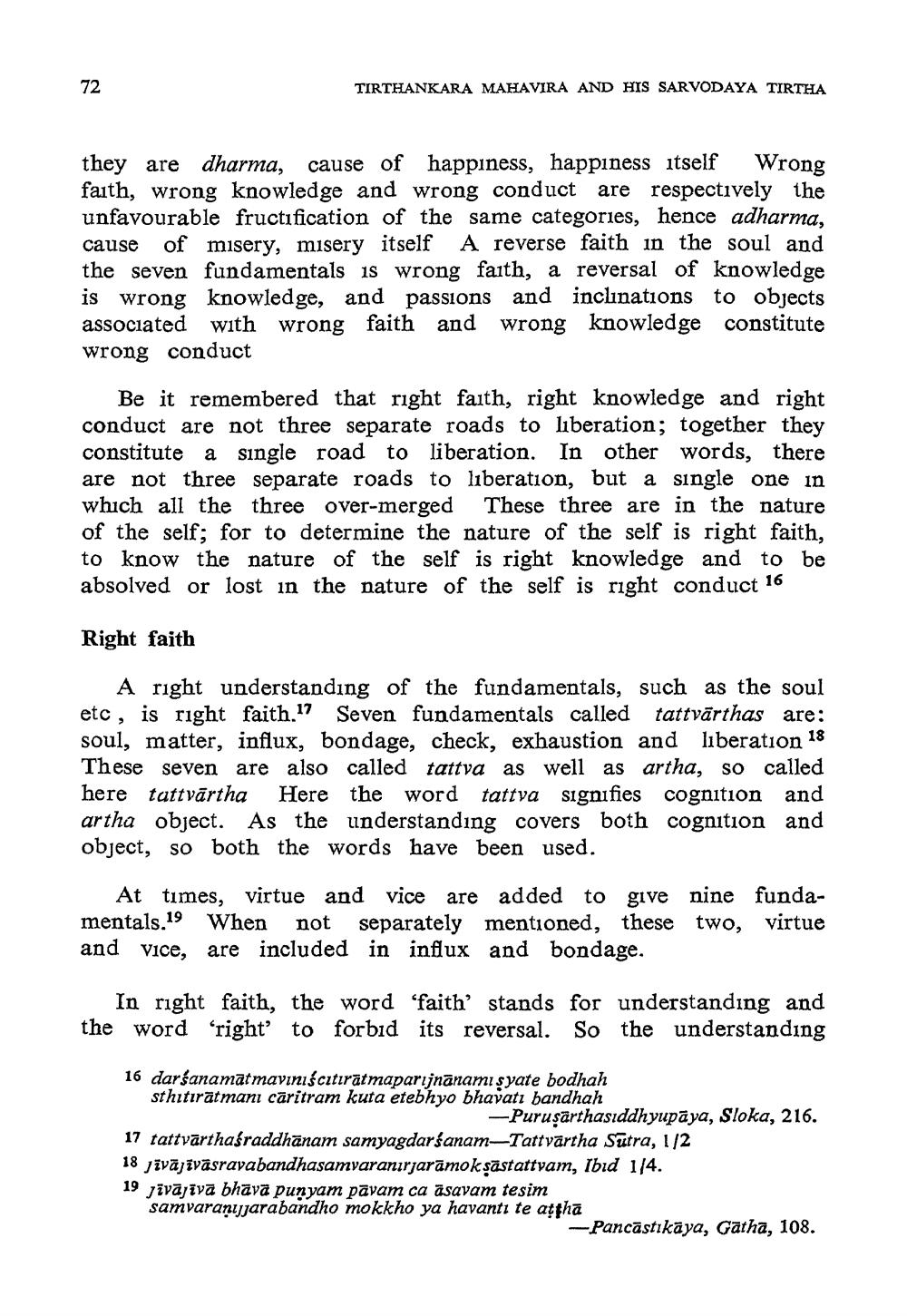________________
72
TIRTHANKARA MAHAVIRA AND HIS SARVODAYA TIRTHA
they are dharma, cause of happiness, happiness itself Wrong faith, wrong knowledge and wrong conduct are respectively the unfavourable fructification of the same categories, hence adharma, cause of misery, misery itself A reverse faith in the soul and the seven fundamentals is wrong faith, a reversal of knowledge is wrong knowledge, and passions and inclinations to objects associated with wrong faith and wrong knowledge constitute wrong conduct
Be it remembered that right faith, right knowledge and right conduct are not three separate roads to liberation; together they constitute a single road to liberation. In other words, there are not three separate roads to liberation, but a single one in which all the three over-merged These three are in the nature of the self; for to determine the nature of the self is right faith, to know the nature of the self is right knowledge and to be absolved or lost in the nature of the self is right conduct 16
Right faith
A right understanding of the fundamentals, such as the soul etc, is right faith.17 Seven fundamentals called tattvärthas are: soul, matter, influx, bondage, check, exhaustion and liberation 18 These seven are also called tattva as well as artha, so called here tattvärtha Here the word tattva signifies cognition and artha object. As the understanding covers both cognition and object, so both the words have been used.
At times, virtue and vice are added to give nine fundamentals.19 When not separately mentioned, these two, virtue and vice, are included in influx and bondage.
In right faith, the word 'faith' stands for understanding and the word 'right' to forbid its reversal. So the understanding
16 darsanamatmavınıś citiratmaparijnanamı şyate bodhah sthitiratmanı caritram kuta etebhyo bhavati bandhah
-Puruşarthasiddhyupaya, Sloka, 216.
17 tattvarthasraddhānam samyagdarsanam-Tattvartha Sutra, 1/2 18 jiväjiväsravabandhasamvaranırjarāmokṣāstattvam, Ibid 1/4. 19 jīvājīvā bhāvā puṇyam pāvam ca asavam tesim samvaraṇijjarabandho mokkho ya havanti te attha
-Pancastıkaya, Gatha, 108.




